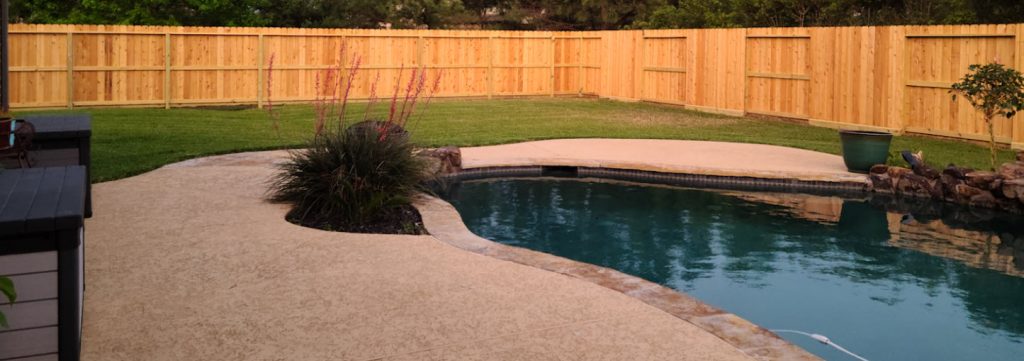How Long Should a Backyard Fence Last?
Considering the investment homeowners make in their properties, the durability of a backyard fence becomes a pivotal aspect that demands careful consideration.
The longevity of a fence is more than just a measure of time; it reflects the quality of materials used, maintenance routines implemented, and the impact of environmental factors.
As we explore the intricacies of fence longevity, we uncover a world where choices made at installation can significantly impact the years of service a fence provides.
So, what truly dictates how long a backyard fence should stand guard, and what factors should homeowners prioritize to ensure a lasting boundary around their homes?

Factors Influencing Longevity of a Backyard Fence
Factors influencing how long a backyard fence will last depend greatly on the quality of the fence purchased or installed, the type of material used, the level of maintenance provided, and the specific environmental conditions in the area where the fence is located.
Weather resilience plays a significant role in determining how well a fence withstands elements like rain, snow, and sun exposure. Proper maintenance practices, such as regular inspections, cleaning, and repairs, can also extend the lifespan of a fence regardless of the material used.
The quality of the fencing material itself is crucial, as durable materials like vinyl, aluminum, or treated wood tend to last longer. Additionally, environmental factors like humidity, soil quality, and proximity to saltwater can impact the longevity of a fence.
Lifespan of Various Fencing Types
Among the different fencing types available, each with its unique characteristics and durability, understanding their respective lifespans is crucial for making informed decisions when selecting a fencing material for your property.
Comparing materials, wood fences typically last up to 20 years, while vinyl fencing boasts an average lifespan of around 25 years. Aluminum fencing falls within a similar range of 20-25 years, known for its resistance to corrosion and rust.
Chain link fencing, the most affordable option, can last 15-20 years with proper maintenance. These average lifespans provide a practical insight into the longevity of different fencing types, aiding homeowners in choosing the most suitable option based on durability and budget considerations.
Benefits of Vinyl Fencing
When considering fencing options for your property, vinyl fencing stands out for its numerous benefits. These include cost-effective durability, easy installation, weather-resistant longevity, and low-maintenance elegance.
Vinyl fences are known for their longevity of around 25 years, making them a reliable choice for homeowners. They are resistant to weather damage, maintaining their appearance even in harsh conditions. Additionally, vinyl fencing enhances the curb appeal of your property, adding a touch of elegance without the need for extensive upkeep.
With minimal maintenance required, vinyl fencing is a practical and attractive option for those looking for a durable and long-lasting fencing solution that combines functionality with aesthetic appeal.
Features of Aluminum Fencing
Aluminum fencing, known for its lightweight yet strong characteristics, offers a durable and aesthetically pleasing solution for property owners seeking both security and style. With a lifespan of 20-25 years, aluminum fencing is renowned for its strength, durability, and resistance to corrosion and rust. This type of fencing requires minimal maintenance, making it a practical choice for those looking for long-term security and elegance. The table below highlights some key features of aluminum fencing:
| Features | Description | Benefits |
|---|---|---|
| Lightweight | Easy to handle and install | Convenient installation |
| Strong | Provides security and stability | Ensures long-lasting fence |
| Corrosion-resistant | Withstands harsh weather conditions | Maintains appearance |
Investing in aluminum fencing guarantees a sturdy and visually appealing perimeter for your property.
Advantages of Chain Link Fencing
With its affordability and durability, chain link fencing stands out as a practical choice for property owners seeking a secure and customizable perimeter solution. Chain link fencing offers privacy options through the addition of slats or screens, making it a versatile choice for both residential and commercial properties.
This type of fencing is a cost-effective solution, ideal for those looking to secure a large area without breaking the bank. Its longevity, lasting 15-20 years with proper maintenance, ensures a reliable barrier for years to come.
Quick and easy to install, chain link fencing provides a budget-friendly and durable choice for property owners prioritizing security and customization.
Services Provided by Texas Fence
Texas Fence offers a comprehensive range of professional fencing services tailored to meet various property needs with precision and expertise. Their services include installing high-quality fences, providing warranty coverage options, and ensuring customer satisfaction.
With a local presence, Texas Fence is a trusted and reliable provider known for offering various fencing options such as vinyl, aluminum, and chain link fences. Customers can benefit from their quality craftsmanship, financing options, and licensed, bonded, and insured services.
Whether it’s enhancing property aesthetics, providing security, or adding privacy, Texas Fence excels in delivering durable and aesthetically pleasing fencing solutions to meet diverse needs.
Additional Insights on Fence Maintenance
Drawing from the discussion on fence maintenance, an integral aspect of ensuring the longevity and aesthetics of your fencing investment involves implementing a proactive and consistent care routine. To maintain your fence effectively, consider the following:
- Regular upkeep is essential to prevent damage.
- Weather protection through sealants or weather-resistant coatings can extend the lifespan of your fence.
- Inspect for any signs of wear or damage regularly.
- Clean your fence periodically to remove dirt and debris that can cause deterioration.
- Address any issues promptly to prevent them from escalating and requiring extensive repairs.
Frequently Asked Questions
Are There Any Specific Regulations or Permits Needed for Installing a Backyard Fence in Certain Areas?
Permit requirements and neighborhood restrictions vary by location for installing backyard fences. Check local regulations for specific guidelines. Homeowner association (HOA) guidelines and property boundaries may also dictate fence height, material, and design. Professional advice is recommended.
How Can I Protect My Fence From Damage Caused by Pets or Wildlife?
To protect your fence from pet and wildlife damage, consider pet-friendly solutions like adding barriers or deterrents. Regular maintenance, prompt fence repair, and using durable materials can help maintain the fence’s integrity. Consult with experts like Texas Fence for tailored solutions.
What Are Some Creative Ways to Customize or Decorate a Backyard Fence?
Incorporating painted murals, plant hangers, hanging baskets, and string lights can creatively enhance a backyard fence. These decorative elements add charm, color, and functionality, transforming the fence into a personalized and inviting outdoor space.
Are There Any Eco-Friendly Options Available for Fencing Materials?
When considering sustainable options for fencing, durability, cost-effectiveness, and aesthetics are key factors. Materials like bamboo, recycled wood, or composite fencing can offer eco-friendly choices that last long, look appealing, and are budget-friendly.
How Can I Effectively Clean and Maintain My Fence to Prolong Its Lifespan?
To effectively clean and maintain your fence for prolonged lifespan, utilize power washing and staining methods. Prevent rot and rust by regularly inspecting for damage, treating with appropriate sealants, and addressing any issues promptly to ensure durability and longevity.
Takeaway
In conclusion, the longevity of a backyard fence is influenced by various factors such as material quality, maintenance, and environmental conditions. Understanding the expected lifespan of different fencing types can guide homeowners in making informed decisions for their property.
With proper care and selection of durable materials like vinyl, aluminum, or chain link, homeowners can ensure their fence lasts for many years to come.
How will you prioritize fence maintenance to maximize the lifespan of your backyard fence?








